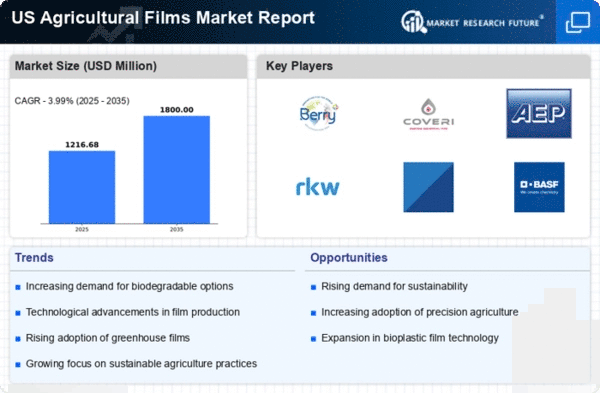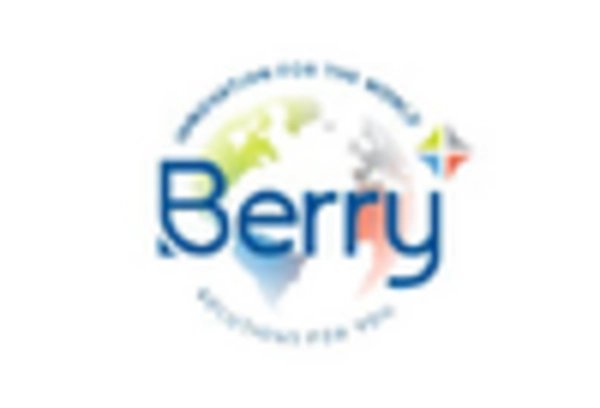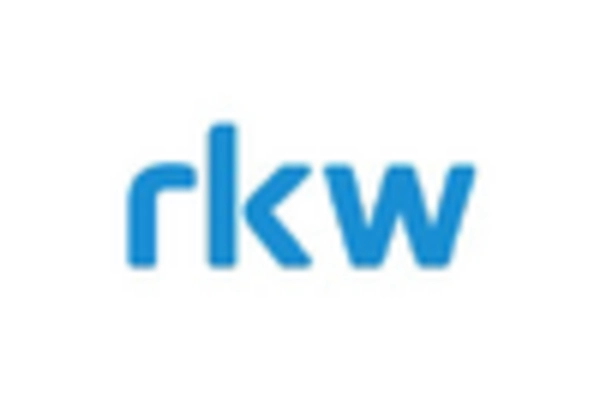The agricultural films market is currently characterized by a dynamic competitive landscape, driven by increasing demand for sustainable agricultural practices and innovative film technologies. Key players such as Berry Global (US), BASF (DE), and Novamont (IT) are actively shaping the market through strategic initiatives focused on sustainability and product innovation. Berry Global (US) has positioned itself as a leader in the production of biodegradable films, which aligns with the growing consumer preference for environmentally friendly solutions. Meanwhile, BASF (DE) emphasizes its commitment to research and development, aiming to enhance the performance characteristics of agricultural films, thereby solidifying its competitive edge. Novamont (IT) is also notable for its focus on bioplastics, which reflects a broader industry trend towards reducing plastic waste and improving the sustainability of agricultural practices.In terms of business tactics, companies are increasingly localizing manufacturing to reduce supply chain vulnerabilities and enhance responsiveness to market demands. The competitive structure of the agricultural films market appears moderately fragmented, with several key players exerting influence over specific segments. This fragmentation allows for niche players to thrive, while larger companies leverage their scale to optimize production and distribution efficiencies.
In October Berry Global (US) announced a partnership with a leading agricultural cooperative to develop a new line of biodegradable mulch films. This collaboration is strategically significant as it not only expands Berry's product offerings but also reinforces its commitment to sustainability, potentially capturing a larger share of the eco-conscious market segment. The partnership is expected to enhance the cooperative's operational efficiency by providing farmers with innovative solutions that align with sustainable practices.
In September BASF (DE) launched a new range of high-performance agricultural films designed to improve crop yields and reduce resource consumption. This product introduction is crucial as it underscores BASF's focus on innovation and its ability to respond to the evolving needs of farmers. By enhancing crop productivity while minimizing environmental impact, BASF positions itself as a forward-thinking leader in the agricultural films sector.
In August Novamont (IT) expanded its production capacity for biodegradable films in response to rising demand. This strategic move is indicative of Novamont's proactive approach to market trends, allowing the company to meet increasing consumer expectations for sustainable agricultural solutions. The expansion not only strengthens Novamont's market position but also highlights the growing importance of sustainability in the agricultural films market.
As of November current competitive trends are increasingly defined by digitalization, sustainability, and the integration of advanced technologies such as AI. Strategic alliances among key players are shaping the landscape, fostering innovation and enhancing supply chain reliability. The shift from price-based competition to a focus on technological advancement and sustainable practices is evident, suggesting that future competitive differentiation will hinge on the ability to innovate and adapt to changing market dynamics.

















